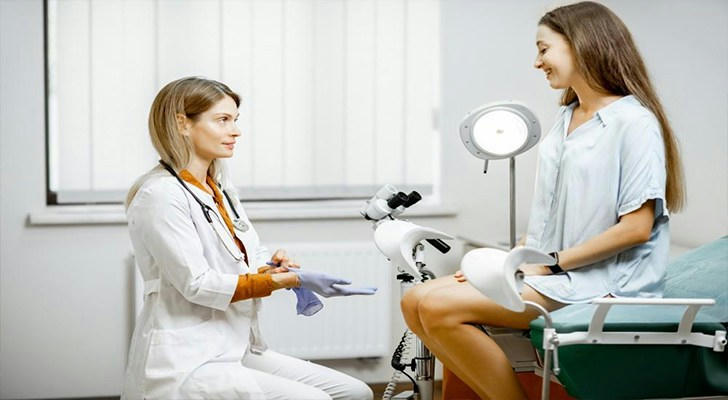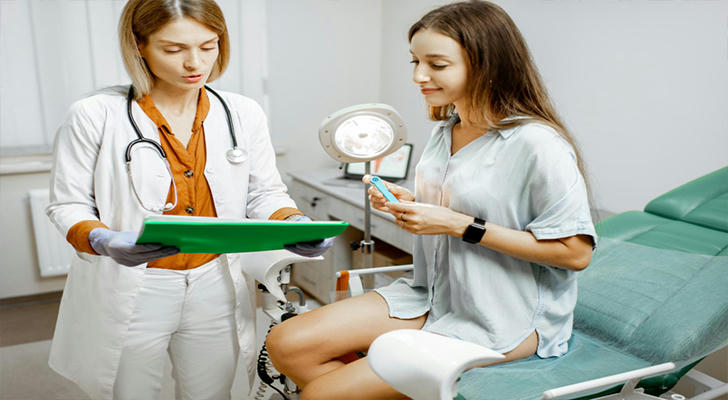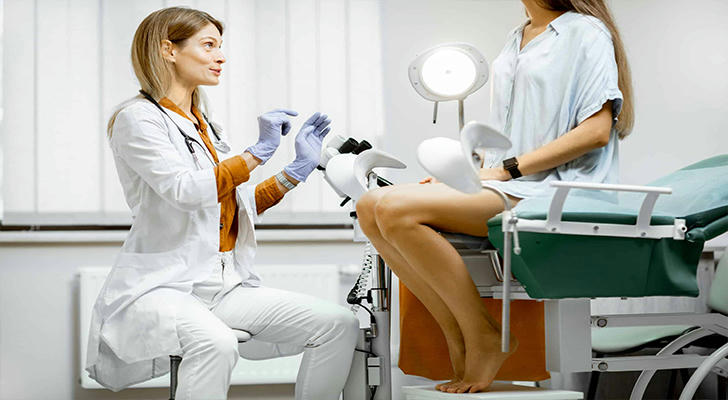Understanding Your Health: The Importance of Gynecological Exams
Gynecological exams are an essential part of women's healthcare, yet many women may feel apprehensive about them. Understanding the significance of these exams can help alleviate concerns and encourage regular check-ups. This article will explore what gynecological exams entail, why they are important, and what women can expect during their visits.

What is a Gynecological Exam?
A gynecological exam is a routine check-up performed by a healthcare provider specializing in women’s reproductive health. This exam typically includes a physical examination of the reproductive organs, screening tests, and discussions about reproductive health issues. It can be performed by various professionals, including obstetricians, gynecologists, nurse practitioners, or physician assistants.

Components of a Gynecological Exam
1.Medical History Review: The healthcare provider will start by reviewing your medical history, including any previous gynecological issues, menstrual cycle details, sexual history, and family health history.
2.Breast Examination: The provider will check for lumps or abnormalities in the breasts. This is an important step in early detection of breast cancer.
3.Pelvic Examination: This involves an external examination of the vulva and an internal examination using a speculum to inspect the vagina and cervix. The provider may perform a Pap smear during this part of the exam to screen for cervical cancer.
4.Bimanual Examination: The provider uses two fingers to feel for abnormalities in the uterus and ovaries while pressing on the abdomen with the other hand.
5.Discussion: After the physical exam, there will be time to discuss any concerns or questions you may have regarding your reproductive health, birth control options, sexually transmitted infection (STI) prevention, or menopause symptoms.

Why Are Gynecological Exams Important?
1. Early Detection of Health Issues
Regular gynecological exams are crucial for early detection of potential health issues. Many conditions affecting women's reproductive health can develop without noticeable symptoms. For instance:
• Cervical Cancer: Regular Pap smears can detect precancerous changes in cervical cells before they develop into cancer.
• Breast Cancer: Early detection through breast exams can significantly improve treatment outcomes.
• STIs: Routine screenings can identify sexually transmitted infections early on, preventing complications such as infertility.
2. Monitoring Reproductive Health
Gynecological exams allow healthcare providers to monitor your reproductive health over time. This is especially important for women who experience irregular periods, pelvic pain, or other symptoms that could indicate underlying issues like endometriosis or fibroids.
3. Guidance on Reproductive Choices
During these exams, healthcare providers can offer valuable advice on various aspects of reproductive health:
• Birth Control Options: Discussing different methods available to prevent pregnancy.
• Menstrual Irregularities: Addressing issues related to heavy periods or missed cycles.
• Pregnancy Planning: Offering preconception counseling for those looking to become pregnant.
4. Support During Life Changes
Women go through various life stages that affect their reproductive health—adolescence, pregnancy, menopause, and beyond. Regular gynecological visits provide support and information tailored to each stage:
• Adolescents: First visits can help educate young women about their bodies and sexual health.
• Pregnant Women: Ongoing care during pregnancy is vital for both maternal and fetal health.
• Menopausal Women: Discussing symptoms like hot flashes and mood swings can lead to effective management strategies.
What to Expect During Your Visit
Preparing for Your Exam
Before your appointment:
• Schedule Wisely: Try to schedule your exam when you are not menstruating for a more comfortable experience.
• List Concerns: Write down any questions or concerns you want to discuss with your provider.
During the Exam
1.Arrival: You’ll check in at the clinic and fill out any necessary forms.
2.Medical History Discussion: The provider will ask about your medical history and current health concerns.
3.Physical Examination:
•You’ll be asked to undress from the waist down and lie on an examination table with your feet in stirrups for the pelvic exam.
•The provider will perform the breast exam first, followed by the pelvic exam using a speculum.
4.Post-Exam Discussion: After the exam, you’ll have an opportunity to discuss findings and next steps.
How Often Should You Get an Exam?
The American College of Obstetricians and Gynecologists (ACOG) recommends that women have their first gynecological visit between ages 13 and 15. After that:
•Women aged 21–29 should have a Pap smear every three years.
•Women aged 30–65 should have Pap smears every three years or co-testing (Pap smear plus HPV test) every five years.
•Women over 65 may stop having Pap smears if they have had adequate prior screening with normal results.
Regardless of screening needs, it’s advisable to visit your gynecologist annually for a wellness check-up.
Overcoming Anxiety About Exams
Many women feel anxious about gynecological exams due to fear of discomfort or embarrassment. Here are some tips to ease anxiety:
• Communicate Openly: Talk with your provider about any fears you have prior to the exam.
• Bring a Friend: Having someone you trust accompany you can provide comfort.
• Practice Relaxation Techniques: Deep breathing exercises can help calm nerves before and during the appointment.
Real-Life Case Study
Consider Sarah, a 28-year-old woman who had avoided gynecological exams due to anxiety about discomfort and embarrassment. After experiencing irregular periods and mild pelvic pain, she decided to schedule an appointment after discussing her symptoms with a friend who emphasized the importance of regular check-ups.During her visit:
•The healthcare provider reviewed her medical history thoroughly and reassured her about the process.
•Sarah underwent a breast examination and pelvic exam without significant discomfort; her provider explained each step beforehand.
•A Pap smear was performed as part of her routine screening.
After discussing her symptoms, Sarah learned about potential causes like hormonal imbalances and was advised on managing her menstrual cycle more effectively. She left feeling empowered with knowledge about her body and committed to scheduling annual exams moving forward.
Understanding the importance of gynecological exams is vital for maintaining overall health. These routine visits not only help detect potential health issues early but also provide valuable guidance on reproductive choices throughout different life stages. Regular check-ups empower women to take charge of their health and well-being. If you haven’t had a gynecological exam recently, don’t hesitate—schedule one today! Your body deserves attention and care; these visits are essential for staying healthy. Taking charge of your reproductive health is one of the best gifts you can give yourself!
Conclusion
Understanding the importance of gynecological exams is vital for maintaining your overall health. These routine visits not only help detect potential health issues early but also provide valuable guidance on reproductive choices throughout different life stages. Regular check-ups empower women to take charge of their health and well-being.If you haven’t had a gynecological exam recently, don’t hesitate—schedule one today! Your body deserves attention and care, and these visits are an essential part of staying healthy. Remember, taking charge of your reproductive health is one of the best gifts you can give yourself!
